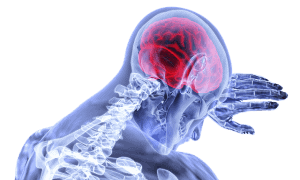
Limmer Education

by Marc Minkler
Our articles are read by an automated voice. We offer the option to listen to our articles as soon as they are published to enhance accessibility. Issues? Please let us know using the contact form.
My friend Bruce recently retired from EMS. With decades and decades of experience and wisdom, his care and expertise are missed. He often referred to and taught about "The Delicate Brain" and all of the injuries and issues that could happen to it. In class we all learn about head injuries and strokes, blood brain barriers and the various lobes. We learn to palpate the head, inspect the eyes and ears, watching for signs of increased intracranial pressure. We know how easily our delicate brain can be damaged, yet we fight it in ourselves.

It’s hard not to think of an EMS provider NOT having a bit of damaged brain to choose this profession, but the reality is unlike the callouses on our hands we develop from our tough work, our brains do not afford us this protection. We see things, hear things, remember things. Each event, the birth of a child, the death of an elder, the scream of pain, remains in our delicate brain, filed somewhere in the vast network of neurons and pathways. Some days it is hard to remember what we have experienced, but that is normal. Think of what you had for lunch yesterday. Now think of what you had a year ago. Not so easy, unless it was a terrible lunch that made your stomach hurt and feel lousy. That is what some events do to us as medical providers.
It affects everyone from the newest EMT to the veteran nurse to the cranky retired surgeon.
Our brain is delicate.
It dents.
It bleeds. It gets injured.
Many people refer to Post-Traumatic Stress Disorder (PTSD). The Merriam-Webster dictionary defines "disorder" first as "a confused or messy state." I don't think of myself as confused or in a messy state (unless I try cooking a grand meal!). But I do believe certain calls have affected me. Some I remember, some I do not.
In EMS, we are educated to seek out problems - we may use DCAP-BTLS or a hundred other variations of assessment. But ultimately, we look for injuries. Perhaps it is time for EMS not to think of the events our delicate brain has stored as "disorders," but rather as "injuries."
General Peter Chiarelli, former Army Vice Chief of Staff, stated that using the term disorder "has the connotation of being something that is a pre-existing problem that an individual has" and "makes the person seem weak." In reality, we all have a delicate brain, subjected to the bumps, dings, bruises, and hits of both daily life and the profession we have chosen.
EMS is slowly making strides to recognize the injuries that befall our brain. Organizations such as The Code Green Campaign and the resources of Everyone Goes Home, and the National Fallen Firefighters Foundation can help those needing a hand (or an ear).
The National Suicide Prevention Lifeline lists five steps to follow at their #BeThe1To campaign.
If you are thinking about harming yourself or attempting suicide, tell someone who can help right away. Call your doctor's office. Call 911 for emergency services. Go to the nearest hospital emergency room. Call the toll-free, 24-hour hotline of the National Suicide Prevention Lifeline at 1-800-273-TALK (1-800-273-8255) to be connected to a trained counselor at a suicide crisis center nearest you.
All of us learn in EMS classes from day one that our safety is paramount, and that we, and our team, are our #1 safety priority. Let's not forget that.
To Bruce, congratulations on your retirement. To all of us, take care of that delicate brain. Phone a friend or share a cup of coffee, but please, be safe.

Limmer Education

Limmer Education

Dan Limmer, BS, NRP